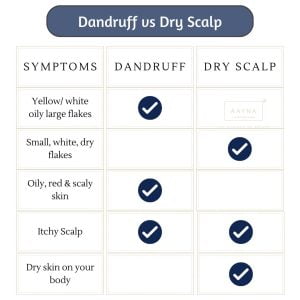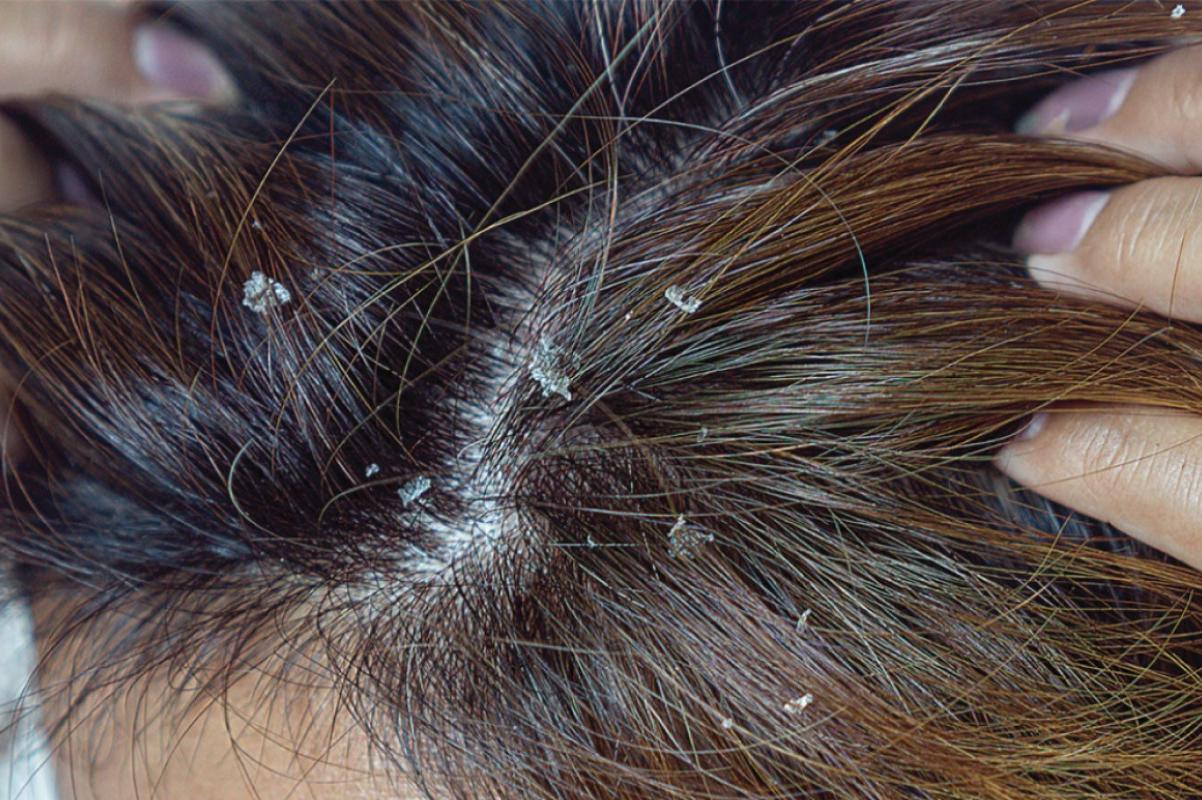Imagine this: You’re all set for the day, feeling confident in your outfit, and loving your hairstyle. But then, that all-too-familiar itch starts creeping up on your scalp. You try to ignore it at first, but soon enough, it turns into an all-out flake fest. Welcome to the world of dry scalp woes.
Dry scalp might not be the most severe of skin or hair issues, but it sure can put a damper on your day. From the relentless itchiness to the unsightly flakes, dealing with a dry scalp can be a real nuisance. The good news? There are plenty of ways to tackle it once you identify the root cause.
We turned to our trusted dermatologists at AAYNA to delve into the nitty-gritty of dry scalps. From uncovering common culprits to exploring effective treatment and prevention strategies, read on to discover how you can elevate your scalp health and, in turn, your overall quality of life.
Understanding Dry Scalp Causes
Dry scalp can stem from various factors, including hair products, excessive washing, weather changes, and underlying skin conditions like psoriasis or eczema. Environmental elements also play a significant role. Excessive sun exposure can parch your scalp, leading to irritation and dryness, while cold, dry air exacerbates flakiness. Essentially, dry scalp is a result of inadequate moisture.
Notably, if you’re prone to dry skin elsewhere on your body, chances are your scalp may also suffer. Hydration is key here—keeping your scalp moisturized can often stave off dryness. However, if your dry scalp is linked to an allergy or conditions like seborrheic dermatitis (aka dandruff), you’ll need a different approach. Consult your dermatologist to pinpoint the exact cause and find the best solution.
Dry Scalp vs. Dandruff
 Although they share similar symptoms—dryness, itchiness, and flakiness—dry scalp and dandruff are distinct conditions. Dry scalp results from lack of moisture, while dandruff, or seborrheic dermatitis, is an inflammatory scalp condition. Each requires its own tailored treatment plan.
Although they share similar symptoms—dryness, itchiness, and flakiness—dry scalp and dandruff are distinct conditions. Dry scalp results from lack of moisture, while dandruff, or seborrheic dermatitis, is an inflammatory scalp condition. Each requires its own tailored treatment plan.
How to Treat Dry Scalp
If you’re seeking relief for your dry scalp, here are eight tried-and-true tips to consider:
- Kickstart Your Routine with a Scalp Scrub
- Harness the Power of Nourishing Oils
- Whip Up a DIY Scalp Treatment
- Treat Yourself to a Soothing Scalp Massage
- Embrace Detoxifying Dry Shampoo
- Incorporate a Hydrating Scalp Serum
- Balance pH Levels with a Tonic
- Explore Medicated Solutions
Preventing Dry Scalp
Maintaining scalp health starts with a detox—sans the wine. Opt for alcohol-free hair care products to avoid drying out your scalp further. Likewise, steer clear of irritating ingredients like sulfates, menthol, and eucalyptus. Avoid product overload, as buildup can exacerbate scalp dryness and pave the way for fungal growth and dandruff.
When to Seek Professional Help
If your dry scalp persists despite home remedies, it’s wise to seek a dermatologist’s advice. They may prescribe medicated shampoos or topical treatments to address underlying issues like seborrheic dermatitis or eczema. A dermatologist can also rule out other skin conditions and recommend tailored solutions.
In Conclusion
While dry scalp may seem like a minor annoyance, its symptoms—itching, redness, and flaking—can take a toll on your comfort and confidence. Fortunately, with the right care regimen—from gentle cleansing to targeted moisturization—you can bid adieu to dry scalp woes and restore balance to your scalp. Remember, a healthy scalp sets the stage for healthy hair, so don’t neglect its needs. If persistent dryness persists, don’t hesitate to seek professional help for expert guidance and personalized treatment options.
Frequently Asked Questions (FAQs)
Q 1. What are the top causes of a dry scalp?
A. Dry scalp can be caused by various factors like cold weather, using harsh hair products, not shampooing enough, or even certain skin conditions like eczema or psoriasis.
Q 2. How often should I wash my hair if I have a dry scalp?
A. Washing your hair too frequently can strip away natural oils and worsen dryness. So, it is suggested to wash your hair 2-3 times a week and use a gentle, hydrating shampoo.
Q 3. Are there any home remedies for dry scalp?
A. Yes, absolutely! Things like coconut oil, olive oil, or even aloe vera gel can provide relief by moisturizing your scalp. Just apply them, leave them on for a bit, then rinse out thoroughly.
Q 4. Should I avoid certain hair products if I have a dry scalp?
A. Definitely. Stay away from products with alcohol or harsh chemicals, as they can further dry out your scalp. Look for gentle, hydrating products instead.
Q 5. Can diet affect my scalp health?
A. Yes, what you eat can definitely play a role. Foods rich in omega-3 fatty acids, vitamins A and E, and zinc can promote scalp health, so try incorporating more of those into your diet.
AAYNA SDA
C3/1, Safdarjung Developemnet Area, New Delhi- 110016
+91 704 229 7304 | +91 987 113 8222
AAYNA Khan Market
47, Middle Lane, Khan Market, Rabindra Nagar, Khan Market, New Delhi – 110003
+91 987 039 6667
AAYNA Gurgaon
Ground Floor, B-89, Sushant Lok Phase I, Sector 43, Gurugram, Haryana – 122002
+91 981 092 7946
AAYNA Ludhiana
7-E, 1st Floor, Sarabha Nagar, Ludhiana – 141001, Punjab
+91 857 500 6060



